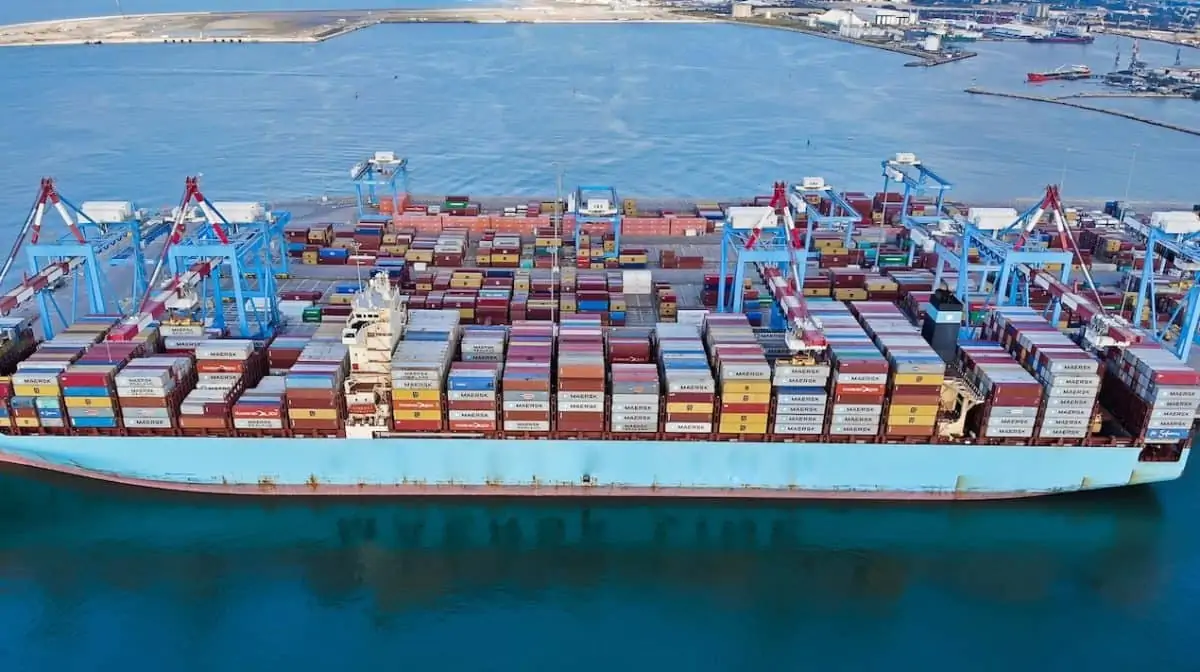In business it is not uncommon to hear the words “Logistics Management” and “Freight Management” thrown around interchangeably.
“Logistics” and “Freight” both conjure up imagery associated with the movement and transportation of goods whether by truck, car, rail, ocean liner or any other form of transportation.
But for those who are professionals working in the Supply Chain field there can be very unique distinctions in this terminology. This is extremely important when you consider the tasks at hand, the skills required, and how to fill these types of jobs.
What is Freight Management?
According to saloodo.com Freight Management is defined as follows: “Freight Management is the process of overseeing and managing a cost-efficient operation and delivery of goods. Freight network management combines logistics experience, human resources and knowledge to ensure a smooth coordination between carriers and shippers.”

The Victoria Transport Policy Institute states that “Freight Transport Management includes various strategies for increasing the efficiency of freight and commercial transport.”
The simplest, but most relevant definition, comes from itxsolutions.com and states that “Freight management is the process of overseeing the transportation of freight.” That is the definition in a nutshell.
But what activities are thus considered to be a part of Freight Management?
Freight Network Management activities in their most basic form, according to these definitions, include:
- Establishing contact with, selecting, and engaging carriers and transportation companies
- Negotiating terms and conditions, rates, and expectations associated with the transportation of goods
- Preparing the appropriate labelling and paperwork to accompany all goods in transit
- Dispatching and scheduling these carriers to pick up and deliver goods at desired times
- Planning for optimization of mode selection, vehicle routing and load balancing
- Tracking the movement of these goods throughout the Supply Chain
- Engaging and working with Customs Brokers and ensuring customs compliance
- Ensuring the appropriate insurance is in place to cover the cost of goods in transit
- Handling any freight claims
- Managing and overseeing the receipt and payment of invoices associated with the transportation of goods
- Looking for opportunities to optimize the movement of goods to improve delivery performance, reduce transit time, reduce cost, and lower environmental impacts
This is a very long and significant list of responsibilities for those in Freight Management. And it is neither well understood nor appreciated by those outside of this field.
Yet without proper Freight Management most company operations would grind to a halt rather quickly.
What is Logistics Management?
Wikipedia states that “Logistics management is the part of supply chain management that plans, implements, and controls the efficient, effective forward, and reverse flow and storage of goods, services, and related information between the point of origin and the point of consumption in order to meet customer’s requirements.”
At techtarget.com they consider that “Logistics management is the governance of supply chain management functions that helps organizations plan, manage and implement processes to move and store goods.”
Finally from investopedia.com we hear that “Logistics refer to the overall process of managing how resources are acquired, stored, and transported to their final destination.”
These definitions includes key words like “process” and “planning” which suggest a more overarching set of activities than those associated with Freight Management.
But let’s consider some of the activities now associated with Logistics Management.
Continuing from the definition at techtarget.com they define Logistics management activities as:
“Logistics management activities typically include inbound and outbound transportation management, fleet management, warehousing, materials handling, order fulfillment, logistics network design, inventory control, supply/demand planning and management of third-party logistics services providers.
To varying degrees, logistics management functions include customer service, sourcing and procurement, production planning and scheduling, packaging, and assembly. Logistics management is part of all the levels of planning and execution, including strategic, operational and tactical.
Further, it coordinates all the logistics activities, and it integrates logistics activities with other functions, including marketing, sales, manufacturing, finance and information technology.”
That is a very comprehensive and extensive set of responsibilities. What is also notable is that Logistics management has a much broader scope than what we have defined as being associated with Freight Management.
Logistics management activities can include:
- Order management, both with Customers and Suppliers
- Warehouse and Distribution Center planning and management
- Materials handling, Packaging and Transportation management
- Inbound and Outbound logistics
- Strategic and tactical planning of all aspects of Supply Chain and materials movement
- Supply Chain network and node design and optimization
- Information flow, tracking and traceability management
- Supplier relationship selection and management
- Materials flow analytics and optimization
- End to End Supply Chain visibility and flow management
- Asset (inventory, infrastructure) management
Logistics management includes a wide range of activities. We have used the term “Supply Chain” here as well but it is also notable that there are differences between Supply Chain and Logistics Management as well.
What’s the Difference Between Freight Management and Logistics Management?
As we mentioned earlier many people, particularly those who are not a part of the Supply Chain, will consider the terms Freight Management and Logistics Management to be synonymous.
However we believe the definitions of each term, along with the set of activities that we’ve outlined, show that there is a clear distinction.
Logistics Management is a more overarching, all-inclusive term. The scope of Logistics Management activities is vast and can cover a large number of activities and stakeholders. But it is inclusive of Freight, or Transportation, Management.
Freight Management is then a subset of Logistics Management. It is in no way diminished in terms of importance however. Without Freight Management, and all of the people who make it happen, there is no ability for Logistics Management to function and fulfill its objectives.
What do you think?


This is much effective article. I am glad to see this article. Thank you very much to share with us.
WOW WHAT A BLOG . REALLY APPRECIATE THAT
This is much effective article